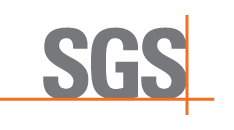
We are the first choice for heavy metals and contaminant testing, trace element and mineral analysis and nutritional analysis.
SGS North America, Inc’s Harrisburg, PA laboratory is dedicated to the analysis of heavy metals and other trace elements using the most current technologies available. We are also a leader in nutritional analyses catering to a wide range of industries and products including:
- Baby food and formulas
- Dietary supplements
- Food colors and flavorings
- Functional ingredients
- Meal replacement bars and beverages
- Processed foods
- Protein and energy bars
- Sports hydration and energy drinks
- Spices and seasonings
Where We Excel
- On-time results
- Accurate results
- Client loyalty
- Customized reports
- Increased capacity
- Low detection levels
Why Choose SGS?
What makes us a leader in our industry in quality data and customer service?
Learn More
